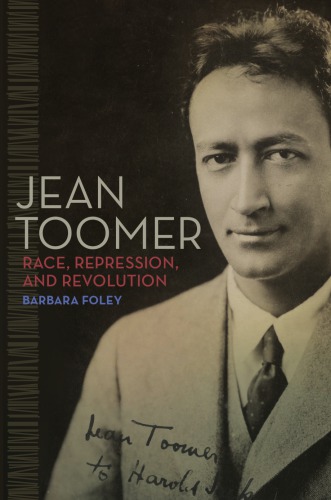Product desciption
Jean Toomer Race Repression And Revolution Foley Barbaratoomer by Foley, Barbara;toomer, Jean 9780252038440, 9780252084799, 9780252096327, 0252038444, 0252084799, 0252096320 instant download after payment.
"The 1923 publication of Cane established Jean Toomer as a modernist master and one of the key literary figures of the emerging Harlem Renaissance. Though critics and biographers alike have praised his artistic experimentation and unflinching eyewitness portraits of Jim Crow violence, few seem to recognize how much Toomer's interest in class struggle, catalyzed by the Russian Revolution and the post-World War One radical upsurge, situate his masterwork in its immediate historical context. In Jean Toomer: Race, Repression, and Revolution, Barbara Foley explores Toomer's political and intellectual connections with socialism, the New Negro movement, and the project of Young America. Examining his rarely scrutinized early creative and journalistic writings, as well as unpublished versions of his autobiography, she recreates the complex and contradictory consciousness that produced Cane. Foley's discussion of political repression runs parallel with a portrait of repression on a personal level. Examining family secrets heretofore unexplored in Toomer scholarship, she traces their sporadic surfacing in Cane. Toomer's text, she argues, exhibits a political unconscious that is at once public and private."--;"With the publication of Cane in 1923 Jean Toomer emerged one of the most widely read, and now one of the most widely studied, authors of the Harlem Renaissance. Honored as a bold literary experimenter and as an eyewitness reporter of the abuses and outrages of Jim Crow Georgia, Toomer himself wished to evade being considered an African American writer and instead sought appreciation as a poet and idealist. While those qualities of his work have attracted significant critical attention, and his biography has been explored to illuminate them, his interest in class struggle and revolution have been eclipsed. In a series of articles that culminate in this book, Barbara Foley brings those aspects back into the light and into close focus, showing how often and how deeply he thought about them and how fierce and enduring they were. Without making the error of ignoring Toomer's artistic accomplishments, Foley shows how much history surrounds and informs Toomer's work, especially in Cane. In his journals from the time when he was writing Cane, Toomer wrote, "It is a symptom of weakness when one must bring God, equality, liberty, and justice to one's support. It follows that the working classes, particularly the dark-skinned among the working classes, are still weak. ... If the Negro, consolidated on race rather than class interests, ever become strong enough to demand the exercise of Power, a race war will occur in America." This book examines Toomer's sense of "equality, liberty, and justice," of "nation," the South," and "America," to reveal elements in his writings that ignite them"--


